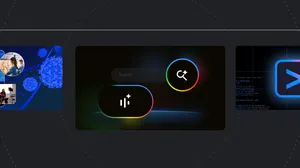New ways we’re tackling spammy, low-quality content on Search

Every day, people turn to Search to find the best of what the web has to offer. We’ve long had policies and automated systems to fight against spammers, and we work to address emerging tactics that look to game our results with low-quality content. We regularly update those policies and systems to effectively tackle these trends so we can continue delivering useful content and connecting people with high-quality websites.
Today we’re announcing key changes we’re making to improve the quality of Search and the helpfulness of your results:
- Improved quality ranking: We’re making algorithmic enhancements to our core ranking systems to ensure we surface the most helpful information on the web and reduce unoriginal content in search results.
- New and improved spam policies: We’re updating our spam policies to keep the lowest-quality content out of Search, like expired websites repurposed as spam repositories by new owners and obituary spam.
Reducing low-quality, unoriginal results
In 2022, we began tuning our ranking systems to reduce unhelpful, unoriginal content on Search and keep it at very low levels. We're bringing what we learned from that work into the March 2024 core update.
This update involves refining some of our core ranking systems to help us better understand if webpages are unhelpful, have a poor user experience or feel like they were created for search engines instead of people. This could include sites created primarily to match very specific search queries.
We believe these updates will reduce the amount of low-quality content on Search and send more traffic to helpful and high-quality sites. Based on our evaluations, we expect that the combination of this update and our previous efforts will collectively reduce low-quality, unoriginal content in search results by 40%.
Update April 26, 2024: As of April 19, we’ve completed the rollout of these changes. You’ll now see 45% less low-quality, unoriginal content in search results versus the 40% improvement we expected across this work.
Keeping more spam out of your results
For decades, we’ve relied on advanced spam-fighting systems and spam policies to prevent the lowest-quality content from appearing in search results — and that work continues.
We’re making several updates to our spam policies to better address new and evolving abusive practices that lead to unoriginal, low-quality content showing up on Search. We’ll take action on more types of these manipulative behaviors starting today. While our ranking systems keep many types of low-quality content from ranking highly on Search, these updates allow us to take more targeted action under our spam policies.
Scaled content abuse
We’ve long had a policy against using automation to generate low-quality or unoriginal content at scale with the goal of manipulating search rankings. This policy was originally designed to address instances of content being generated at scale where it was clear that automation was involved.
Today, scaled content creation methods are more sophisticated, and whether content is created purely through automation isn't always as clear. To better address these techniques, we’re strengthening our policy to focus on this abusive behavior — producing content at scale to boost search ranking — whether automation, humans or a combination are involved. This will allow us to take action on more types of content with little to no value created at scale, like pages that pretend to have answers to popular searches but fail to deliver helpful content.
Site reputation abuse
Sometimes, websites that have their own great content may also host low-quality content provided by third parties with the goal of capitalizing on the hosting site's strong reputation. For example, a third party might publish payday loan reviews on a trusted educational website to gain ranking benefits from the site. Such content ranking highly on Search can confuse or mislead visitors who may have vastly different expectations for the content on a given website.
We’ll now consider very low-value, third-party content produced primarily for ranking purposes and without close oversight of a website owner to be spam. We're publishing this policy two months in advance of enforcement on May 5, to give site owners time to make any needed changes.
Expired domain abuse
Occasionally, expired domains are purchased and repurposed with the primary intention of boosting search ranking of low-quality or unoriginal content. This can mislead users into thinking the new content is part of the older site, which may not be the case. Expired domains that are purchased and repurposed with the intention of boosting the search ranking of low-quality content are now considered spam.
Search helps people with billions of questions every day, but there will always be areas where we can improve. We’ll continue to work hard at keeping low-quality content on Search to low levels, and showing more information created to help people.







